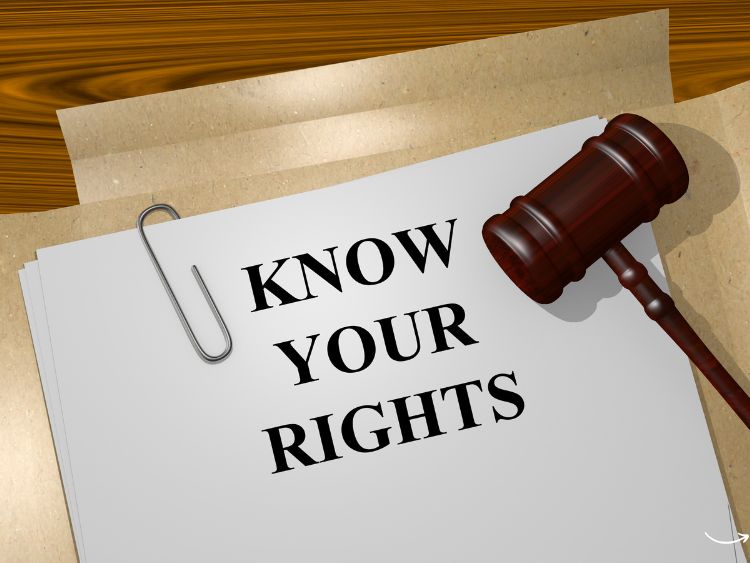Hey there! Are you a worker in South Carolina looking to know more about your rights? Well, you’re in the right place. This comprehensive guide will walk you through the ins and outs of South Carolina employee rights. We’ll cover everything from wages and breaks to discrimination and workplace safety. So, buckle up and let’s dive into this essential topic for every Palmetto State worker.
Understanding Employee Rights in South Carolina
In South Carolina, employee rights encompass a wide range of protections and entitlements. Whether you’re a seasoned employee or just starting out, knowing your rights can make a significant difference in your work experience. Here’s a breakdown of the key areas we’ll cover:
- Wages and Hours
- Workplace Safety
- Discrimination and Harassment
- Family and Medical Leave
- Retaliation Protections
Wages and Hours: What You’re Entitled To
Minimum Wage
South Carolina follows the federal minimum wage, which is currently $7.25 per hour. Employers must adhere to this rate, but certain exemptions apply, such as for tipped employees who may be paid a lower base wage provided their tips bring their total earnings up to the minimum wage.
Overtime Pay
South Carolina employees are entitled to overtime pay under the Fair Labor Standards Act (FLSA). This means if you work more than 40 hours in a workweek, you should receive 1.5 times your regular pay rate for the extra hours. Isn’t that great?
Payday Requirements
Employers in South Carolina must pay their employees on regularly scheduled paydays. They must inform employees of the pay schedule upon hiring. If an employer fails to pay on time, employees can file a complaint with the South Carolina Department of Labor, Licensing, and Regulation (LLR).
Workplace Safety: Ensuring a Safe Working Environment
OSHA Regulations
South Carolina operates its own Occupational Safety and Health Administration (OSHA) program. This program sets and enforces workplace safety and health standards. Employers are required to maintain a safe working environment and comply with OSHA regulations to prevent workplace injuries and illnesses.
Reporting Unsafe Conditions
If you believe your workplace is unsafe, you have the right to report it without fear of retaliation. You can file a complaint with South Carolina OSHA, which will investigate the issue. Remember, your safety is a top priority!
Discrimination and Harassment: Your Right to Fair Treatment
Protected Characteristics
In South Carolina, it’s illegal to discriminate against employees based on race, color, religion, sex, national origin, age (40 or older), disability, or genetic information. This means that all employment decisions, from hiring to promotions and terminations, must be free from discrimination.
Sexual Harassment
Sexual harassment is a form of discrimination that violates employee rights. It includes unwanted sexual advances, requests for sexual favors, and other verbal or physical harassment of a sexual nature. If you’re facing harassment, report it to your employer or the Equal Employment Opportunity Commission (EEOC).
Filing a Complaint
If you believe you’ve been discriminated against, you can file a complaint with the South Carolina Human Affairs Commission (SCHAC) or the EEOC. These agencies will investigate your claim and take appropriate action. Don’t hesitate to stand up for your rights!
Family and Medical Leave: Balancing Work and Life
FMLA Basics
The Family and Medical Leave Act (FMLA) allows eligible employees to take up to 12 weeks of unpaid leave for certain family and medical reasons. This includes the birth or adoption of a child, caring for a seriously ill family member, or dealing with your own serious health condition.
Eligibility Requirements
To be eligible for FMLA leave, you must have worked for your employer for at least 12 months and clocked at least 1,250 hours in the past year. Additionally, your employer must have at least 50 employees within a 75-mile radius.
Job Protection
One of the best parts about FMLA leave? Your job is protected! This means you can take the necessary time off without fear of losing your job. Upon return, you should be reinstated to your original position or an equivalent one.
Retaliation Protections: Safeguarding Your Rights
Understanding Retaliation
Retaliation occurs when an employer punishes an employee for engaging in legally protected activities, such as filing a complaint or participating in an investigation. Retaliation can take many forms, including demotion, termination, or other adverse actions.
Legal Protections
South Carolina law protects employees from retaliation. If you believe you’re being retaliated against, you can file a complaint with the South Carolina Department of Labor, Licensing, and Regulation or the EEOC. These agencies will investigate and take action to protect your rights.
Examples of Protected Activities
- Filing a complaint about workplace safety or discrimination
- Participating in an investigation or lawsuit
- Requesting reasonable accommodations for a disability
- Taking FMLA leave
FAQs: Your Questions Answered
Can my employer fire me without a reason?
South Carolina is an at-will employment state, meaning employers can terminate employees for any reason or no reason at all, as long as it’s not illegal (e.g., based on discrimination or retaliation).
What should I do if I’m not paid on time?
If your employer fails to pay you on time, you can file a wage complaint with the South Carolina Department of Labor, Licensing, and Regulation. They will investigate and help you recover unpaid wages.
Are there any protections for whistleblowers?
Yes, South Carolina law protects whistleblowers from retaliation. If you report illegal activities or safety violations, you are safeguarded against adverse actions from your employer.
How can I file a discrimination complaint?
You can file a discrimination complaint with the South Carolina Human Affairs Commission (SCHAC) or the Equal Employment Opportunity Commission (EEOC). These agencies will investigate your claim and take appropriate action.
What rights do I have as a pregnant employee?
Pregnant employees are protected under the Pregnancy Discrimination Act (PDA). Employers must provide reasonable accommodations for pregnancy-related conditions and cannot discriminate based on pregnancy, childbirth, or related medical conditions.
Conclusion
Understanding your rights as an employee in South Carolina is crucial to ensuring fair treatment and a safe working environment. From wages and hours to discrimination and retaliation protections, knowing these rights empowers you to take action when necessary. Remember, the South Carolina Department of Labor, Licensing, and Regulation, OSHA, SCHAC, and the EEOC are valuable resources for enforcing your rights.
Stay informed, stay protected, and never hesitate to stand up for yourself in the workplace. Your rights matter!
Authoritative Links
- South Carolina Department of Labor, Licensing, and Regulation: www.llr.sc.gov
- South Carolina Human Affairs Commission: www.schac.sc.gov
- Equal Employment Opportunity Commission: www.eeoc.gov
- U.S. Department of Labor: www.dol.gov
- OSHA South Carolina: www.osha.gov/southcarolina
By understanding and exercising your rights, you contribute to a fairer, safer, and more equitable workplace for all.





